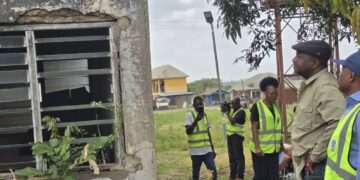Agurodo is a historic village located in the northern part of Ejigbo, Osun State. It is bordered by Ola to the south, Aye/Oguro to the north, Isoko to the east, and the Kojomonu mountain to the west, which serves as a natural boundary with Iware and other communities in Ogbomoso, Oyo State. Shaped by royal heritage, migration, and a legacy of resilience, Agurodo stands as a symbol of tradition and unity.
The founding of Agurodo traces back to a prince from the Olugbense Royal Family in Offa, present-day Kwara State. Following a chieftaincy dispute, the prince left Offa in search of a new settlement. Guided by divination, he journeyed to Ogiyan in Ejigbo to request land. Ogiyan, however, advised him to seek the oracle’s guidance once again. The second divination directed him to a location between two streams—Eyenkole and Arinkinkin—where he eventually settled and founded what is now known as Agurodo.
The founder’s royal lineage is significant: the first Olugbense ruled Offa between 1726 and 1786, a reign that lasted 60 years and was marked by developmental milestones such as road construction and infrastructure projects in the Offa township. This legacy of leadership, innovation, and community building carried over into the formation of Agurodo.
Agurodo also has deep historical ties with the Yoruba wars. During these conflicts, a faction of the village migrated further to Ogbomoso, where they joined allied warrior forces defending the Oyo Empire. Others sought refuge and eventually formed a lasting settlement known as Agurodo in Ogbomoso, which still maintains close ties with the original village and other related communities.
Today, Agurodo is a peaceful and organized community known for its religious diversity. Places of worship include a Baptist Church, Foursquare Gospel Church, Christ Apostolic Church (CAC), the Redeemed Christian Church of God (RCCG), and a mosque—reflecting the community’s enduring spirit of tolerance and harmony.
Traditional institutions are well preserved, with festivals such as Egungun and Oro celebrated annually. These cultural practices are integral to community life and help keep ancestral values alive.
Agurodo is also home to both primary and secondary schools, providing essential education to children in the community and neighboring areas. A maternity center offers much-needed healthcare services, particularly maternal and child care, a crucial need in many rural areas across Nigeria.
The community is flanked by twin rivers that support agricultural livelihoods. Farming, palm oil extraction, and garri production remain the dominant economic activities, sustaining the local population and reinforcing Agurodo’s reputation as a self-reliant rural settlement.
Community leaders describe Agurodo as “a village with history and potential,” highlighting the resilience and forward-looking mindset of its people. Despite its cultural richness and historical significance, the community still seeks greater government support, especially in infrastructure, road access, and public services.
As Osun State continues to promote rural development, Agurodo remains a compelling example of a community rooted in heritage, strengthened by history, and united by a common vision of progress and pride.














